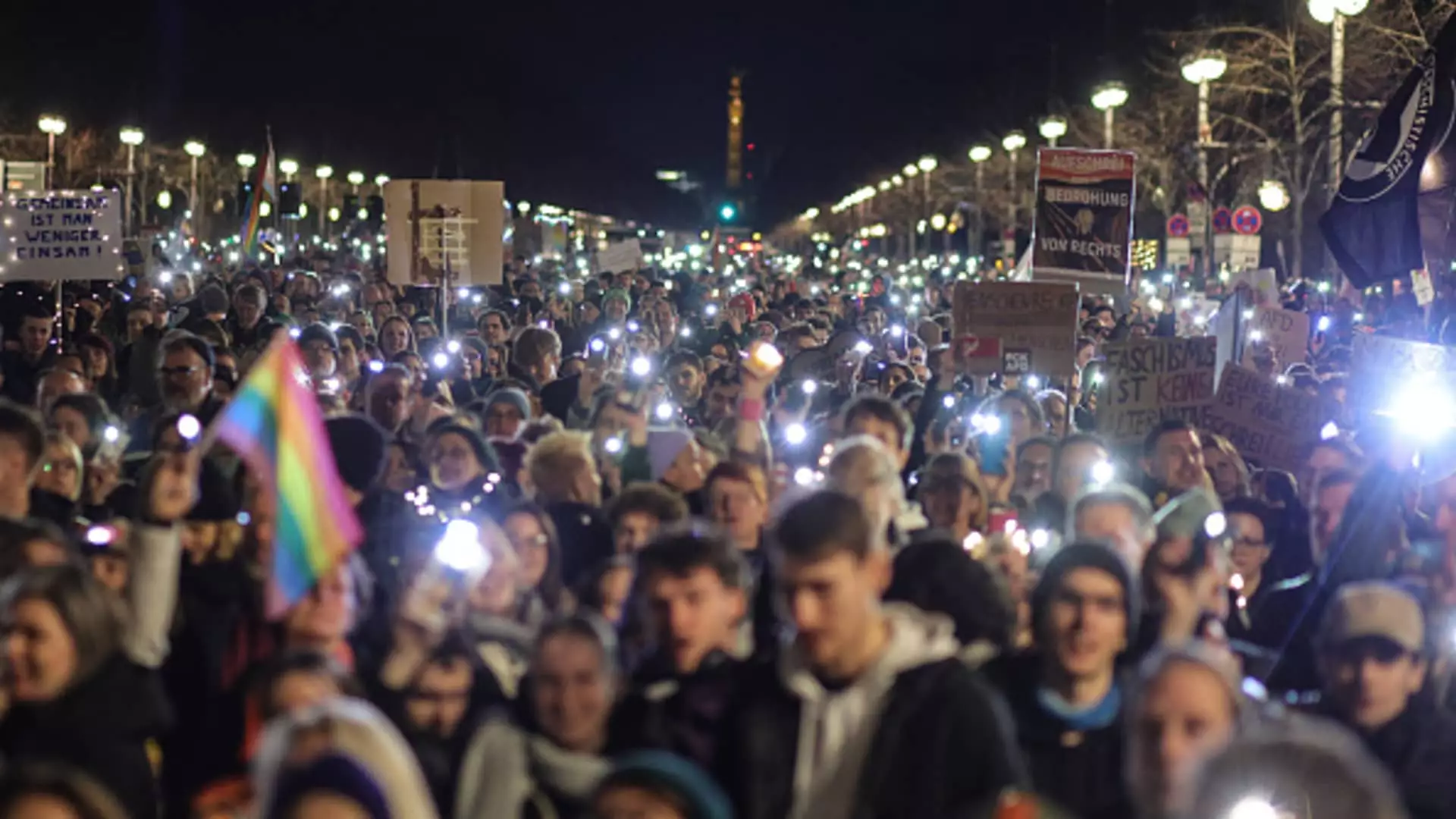On a recent Saturday, tens of thousands of Germans gathered in Berlin and various cities nationwide, making a bold statement against the surge of the far-right, anti-immigrant Alternative for Germany (AfD) party. The protest coincided with heightened political tensions as Germany approached a general election scheduled for February 23rd. Demonstrations at iconic sites like the Brandenburg Gate showcased a passionate public sentiment, with participants brandishing banners, blowing whistles, and chanting anti-fascist anthems. Such mobilizations are not merely local phenomena; they represent a growing resistance against what many perceive as a disturbing shift toward intolerance and extremism in Europe.
Activists emphasized that their efforts were not only directed at the AfD but also intended to shine a light on broader threats posed by far-right ideologies across the continent and internationally, particularly under the new administration of U.S. President Donald Trump. Luisa Neubauer, a prominent figure in the Fridays for Future climate movement, underscored this sentiment, asserting that entities promoting racism and undermining climate action pose serious threats to public welfare and safety. Rather than merely opposing one party, the protests aimed to create a unified front against a wave of right-wing populism fueled by fear and misinformation.
The protests unfolded against a backdrop of political instability; Chancellor Olaf Scholz’s recently crumbled three-party coalition left a vacuum of governance, exacerbating public concern about the direction of Germany’s leadership. While the AfD officially launched their election campaign in Halle, featuring party leader Alice Weidel, the atmosphere was fraught with tension. Weidel’s campaign received unexpected support from high-profile figures such as Elon Musk, whose involvement provoked controversy and highlighted the complexities of global connections in local politics.
The mainstream political entities have expressed a united front against collaborating with the AfD, presenting a significant stance given the party’s growing popularity among segments of the electorate. The opposition center-right Union bloc, led by Friedrich Merz, currently leads pre-election polls, placing intense pressure on them to address migration—one of the pivotal issues shaping voter sentiment. Merz’s announcement of upcoming legislative motions to strengthen immigration policies raised eyebrows, as such proposals risk tacit cooperation with AfD, potentially undermining long-standing commitments to shun any partnerships with the extremist party.
This moment in Germany’s political landscape underscores the vital role of collective action in countering trends perceived as harmful to democracy and social cohesion. As citizens rally against far-right ideologies, they illustrate the power of peaceful protest and public discourse. It serves as a reminder that combating extremism requires not just local engagement but also an understanding of its interconnected roots in the larger global framework. The unfolding events in Germany may well provide a crucial test of democratic resilience in the face of rising populism, both at home and abroad.


Leave a Reply